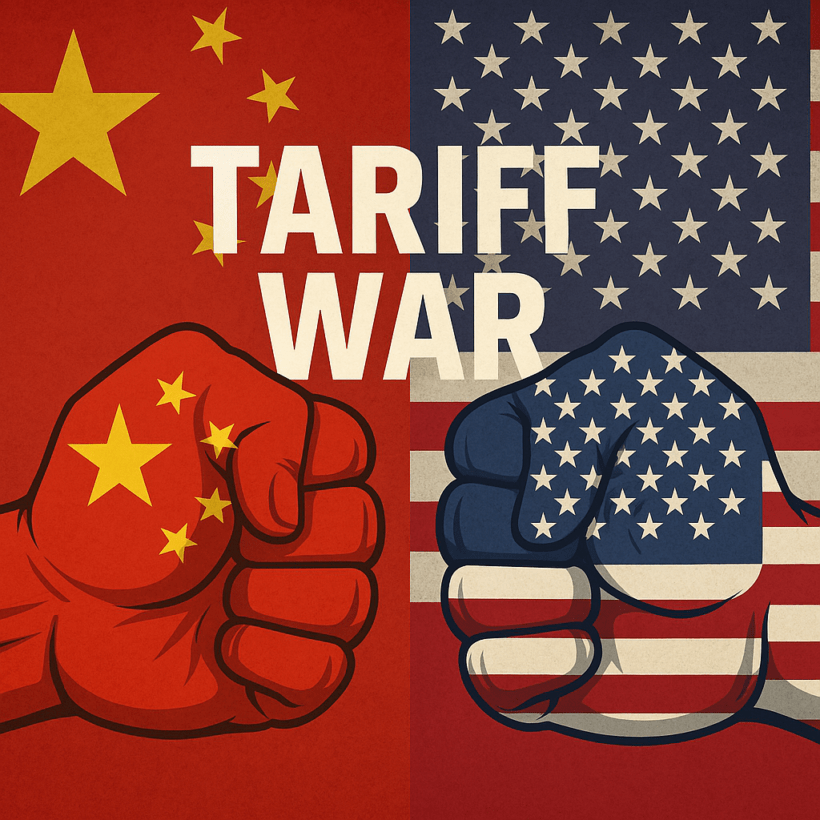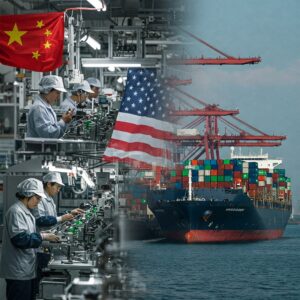China Strikes Back: Full Tariff Retaliation Against U.S. Sparks Economic Jitters
China has announced sweeping tariffs on all U.S. goods, escalating the ongoing trade war between the world’s two largest economies. This move comes in direct response to President Donald Trump’s recent “Liberation Day” tariffs on Chinese imports. The escalating tit-for-tat measures have significant implications for global trade, economies, and industries.
WSJ
China’s Retaliatory Measures
On April 4, 2025, China declared a 34% tariff on all U.S. goods, effective April 10. This decision aims to counterbalance the U.S.’s latest tariffs on Chinese imports, which raised the average tariff on incoming Chinese products to approximately 70%. In addition to tariffs, China announced export controls on rare-earth minerals and imposed restrictions on over two dozen American companies. Notably, firms like DuPont are now under investigation.
THETIMES
Impact on Global Markets
The announcement sent shockwaves through global financial markets. Major U.S. stock indices, including the S&P 500 and Nasdaq, fell by nearly 3%. Financial stocks like Morgan Stanley and JP Morgan experienced significant declines. European and Asian markets also faced substantial drops, intensifying fears of a global recession.
Energy Sector Repercussions
The energy sector felt immediate effects. Crude oil prices plummeted by 8%, nearing their lowest levels since the COVID-19 peak in 2021. Analysts attribute this decline to heightened fears of a global recession, reduced oil demand, and increased production commitments from OPEC+ slated for May.
Reuters
Economic Implications
The imposition of tariffs on all American goods marks a significant shift in China’s strategy, indicating a reduced hesitation in confronting U.S. tariff threats. This broad retaliatory stance heightens global economic uncertainty and diminishes the likelihood of a near-term resolution. The measures threaten $143.5 billion worth of U.S. exports, with industries like agriculture and technology bracing for substantial impacts.
Geopolitical Dynamics
China’s retaliatory actions may also influence geopolitical alliances. Countries with close ties to China, such as Cambodia, Laos, and Myanmar, are facing significant U.S. tariffs. This situation could push these nations closer to Beijing, enhancing China’s influence in Southeast Asia.
Business Insider
Calls for Negotiation
Amidst the escalating trade tensions, former Goldman Sachs CEO Lloyd Blankfein urged President Trump to delay the imposition of additional tariffs by six months to allow for trade negotiations. Blankfein suggested maintaining the base 10% tariff but postponing further measures, highlighting the potential willingness of other nations to negotiate.
New York Post
Conclusion
The escalating trade war between China and the U.S. has far-reaching implications for global economies, industries, and geopolitical alliances. The imposition of sweeping tariffs by both nations underscores the urgency for diplomatic negotiations to prevent further economic downturns and foster stable international trade relations.










Comments are closed.